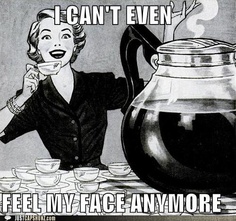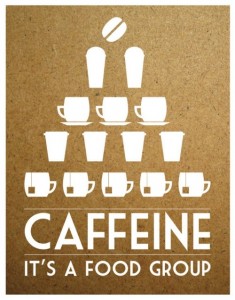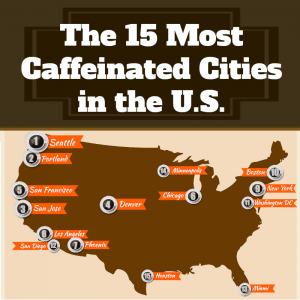by Jose Antonio PhD FISSN FNSCA. There’s some silly shit (albeit funny) you can find on  Facebook. One of the more common themes are health-conscious individuals who are going on their latest ‘detox’ kick. Now this article isn’t going to beat the proverbial crap out of ‘detoxing’ (even though there’s plenty to beat up on). Hint: it’s why we have a liver and kidneys. What’s funny/ironic/inane/vapid (you get my drift) is that for many of these individuals, they will stop drinking coffee because as we all know, coffee is bad bad bad; you know, that whole detox thing. To show you how I feel about that, I quote Ebenezer Scrooge (“A Christmas Carol”): Bah Humbug.
Facebook. One of the more common themes are health-conscious individuals who are going on their latest ‘detox’ kick. Now this article isn’t going to beat the proverbial crap out of ‘detoxing’ (even though there’s plenty to beat up on). Hint: it’s why we have a liver and kidneys. What’s funny/ironic/inane/vapid (you get my drift) is that for many of these individuals, they will stop drinking coffee because as we all know, coffee is bad bad bad; you know, that whole detox thing. To show you how I feel about that, I quote Ebenezer Scrooge (“A Christmas Carol”): Bah Humbug.
Now how do I know refraining from coffee is absurd, particularly from the standpoint of health? Or to rephrase, how would YOU come up with reasonable and well-thought out conclusions regarding coffee or anything nutrition-related thing for that matter? Voodoo? The Magic of David Copperfield? Witchcraft? Bro-Science? Schmo-Science? My-Momma-Told-Me-So? Because you saw it on Pinterest?
If you answered yes to any of the above, you’re a complete moron. If the folks who ‘detoxed’ by not drinking coffee bothered to get at least semi-educated on the science of coffee, then perhaps they wouldn’t be hoodwinked by the nonsense that pervades the internet. Yes, there is a plethora of science to show that coffee drinking is pretty damn good for you.
Now before you think I make this stuff up, here’s some food for thought. Or better yet, facts to chew on. It’s in bullet point form for those of you with the attention span of a mosquito.
- Both caffeine (5 mg/kg/BW) and coffee (5 mg/kg/BW) consumed 1 h prior to exercise can improve endurance exercise performance.(1)
- Coffee treatment attenuated the decrease in the muscle weight and grip strength, increased the regenerating capacity of injured muscles, and decreased the serum pro-inflammatory mediator levels compared to controls.(2)
- Coffee treatment had a beneficial effect on age-related sarcopenia.(2)
- Increasing coffee consumption over a 4 year period is associated with a lower risk of type 2 diabetes, while decreasing coffee consumption is associated with a higher risk of type 2 diabetes in subsequent years.(3)
- Coffee consumption may be protective against periodontal bone loss in adult men.(4)
- Coffee consumption is associated with a reduced risk of total mortality.(5)
- Daily coffee consumption may reduce the risk of gastric cancer in high-risk populations, especially among women.(6)
- In patients with chronic liver disease, daily coffee consumption should be encouraged.(7)
- Coffee consumption has been associated with a lower risk of type 2 diabetes.(8)
- This study does not support the idea that coffee is a risk factor for impaired bone health in Korean premenopausal women.(9)
- Both caffeinated and decaffeinated coffee may be protective against deterioration of glucose tolerance.(10)
- We found no statistically significant association between coffee consumption and the risk of overall, advanced, or fatal prostate cancer.(11)
- In this large prospective study, caffeinated coffee intake was inversely associated with oral/pharyngeal cancer mortality.(12)
- Coffee may reduce both motor and cognitive deficits in aging.(13)
- These results from three large cohorts support an association between caffeine consumption and lower risk of suicide.(14)
Take Home Message – The question that YOU need to ask yourself is this. What is the compelling reason to NOT consume coffee? Okay, to some it tastes like mud. But hey, put some cream and sugar in it, and that’ll make it dance on your taste buds. Or the other reason might be this: “I really don’t want to be healthier.” I’ve heard sillier things.
Can you drink too much? Well of course you can. There are rare cases of folks overdosing on caffeine (not coffee). But just to give you an example of how difficult it is to overdose on caffeine, here are some numbers for you.
- One guy ingested 24 grams in a suicide attempt; he suffered complications of severe rhabdomyolysis and acute renal failure requiring subsequent hemodialysis.(15)
- Another guy died after consuming 12 grams.(16)
- A woman went into cardiac arrest after a 10 gram dose.(17)
Now if we stick to the 10 gram dose as being ‘too much,’ heck that’s equal to 100 cups of coffee! Even the most maniacal coffee addicts that I know of aren’t that crazy!
Bottom line: drink coffee. It does the body good.
References
1. Hodgson AB, Randell RK, Jeukendrup AE. The metabolic and performance effects of caffeine compared to coffee during endurance exercise. PLoS One 2013;8(4):e59561.
2. Guo Y, Niu K, Okazaki T, Wu H, Yoshikawa T, Ohrui T, et al. Coffee treatment prevents the progression of sarcopenia in aged mice in vivo and in vitro. Exp Gerontol 2014;50:1-8.
3. Bhupathiraju SN, Pan A, Manson JE, Willett WC, van Dam RM, Hu FB. Changes in coffee intake and subsequent risk of type 2 diabetes: three large cohorts of US men and women. Diabetologia 2014.
4. Ng N, Kaye EK, Garcia RI. Coffee Consumption and Periodontal Disease in Men. J Periodontol 2013.
5. Je Y, Giovannucci E. Coffee consumption and total mortality: a meta-analysis of twenty prospective cohort studies. Br J Nutr 2014;111(7):1162-73.
6. Ainslie-Waldman CE, Koh WP, Jin A, Yeoh KG, Zhu F, Wang R, et al. Coffee intake and gastric cancer risk: the singapore chinese health study. Cancer Epidemiol Biomarkers Prev 2014;23(4):638-47.
7. Saab S, Mallam D, Cox GA, 2nd, Tong MJ. Impact of coffee on liver diseases: a systematic review. Liver Int 2014;34(4):495-504.
8. Natella F, Scaccini C. Role of coffee in modulation of diabetes risk. Nutr Rev 2012;70(4):207-17.
9. Choi EJ, Kim KH, Koh YJ, Lee JS, Lee DR, Park SM. Coffee consumption and bone mineral density in korean premenopausal women. Korean J Fam Med 2014;35(1):11-8.
10. Ohnaka K, Ikeda M, Maki T, Okada T, Shimazoe T, Adachi M, et al. Effects of 16-week consumption of caffeinated and decaffeinated instant coffee on glucose metabolism in a randomized controlled trial. J Nutr Metab 2012;2012:207426.
11. Bosire C, Stampfer MJ, Subar AF, Wilson KM, Park Y, Sinha R. Coffee consumption and the risk of overall and fatal prostate cancer in the NIH-AARP Diet and Health Study. Cancer Causes Control 2013;24(8):1527-34.
12. Hildebrand JS, Patel AV, McCullough ML, Gaudet MM, Chen AY, Hayes RB, et al. Coffee, tea, and fatal oral/pharyngeal cancer in a large prospective US cohort. Am J Epidemiol 2013;177(1):50-8.
13. Shukitt-Hale B, Miller MG, Chu YF, Lyle BJ, Joseph JA. Coffee, but not caffeine, has positive effects on cognition and psychomotor behavior in aging. Age (Dordr) 2013;35(6):2183-92.
14. Lucas M, O’Reilly EJ, Pan A, Mirzaei F, Willett WC, Okereke OI, et al. Coffee, caffeine, and risk of completed suicide: Results from three prospective cohorts of American adults. World J Biol Psychiatry 2013.
15. Campana C, Griffin PL, Simon EL. Caffeine overdose resulting in severe rhabdomyolysis and acute renal failure. Am J Emerg Med 2014;32(1):111 e3-4.
16. Jabbar SB, Hanly MG. Fatal caffeine overdose: a case report and review of literature. Am J Forensic Med Pathol 2013;34(4):321-4.
17. Rudolph T, Knudsen K. A case of fatal caffeine poisoning. Acta Anaesthesiol Scand 2010;54(4):521-3.



